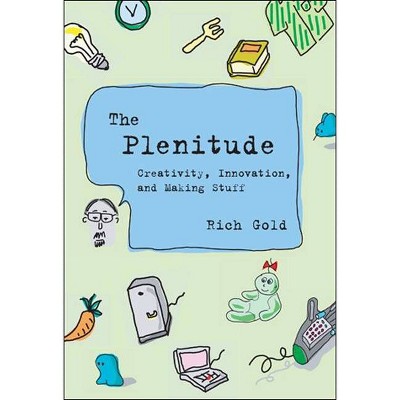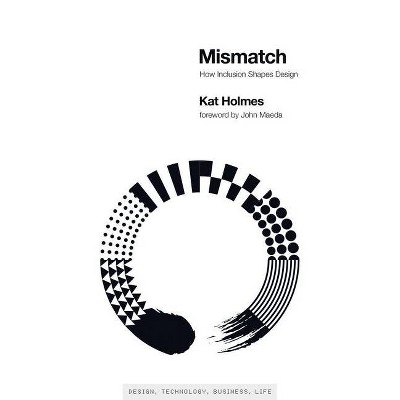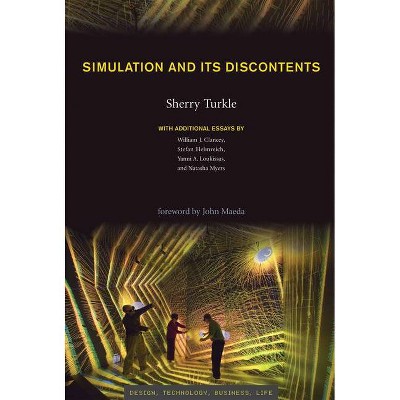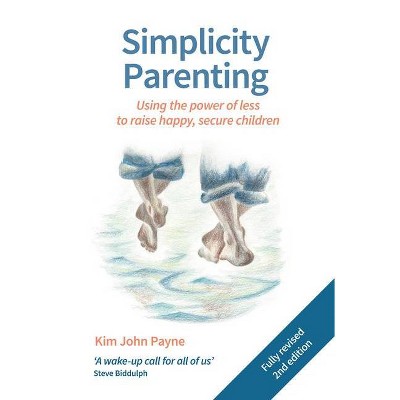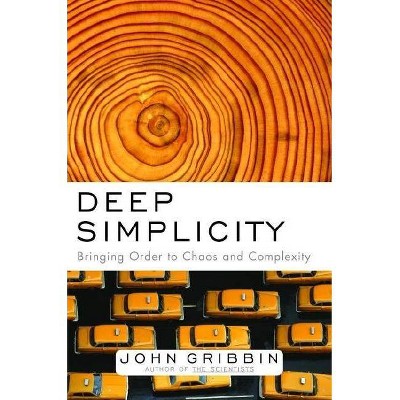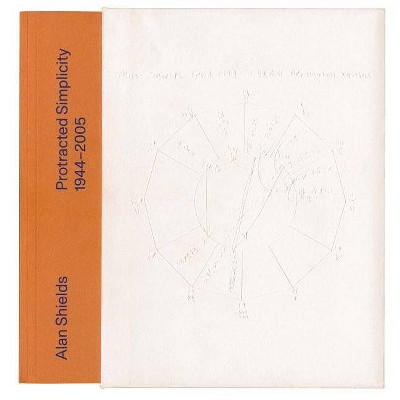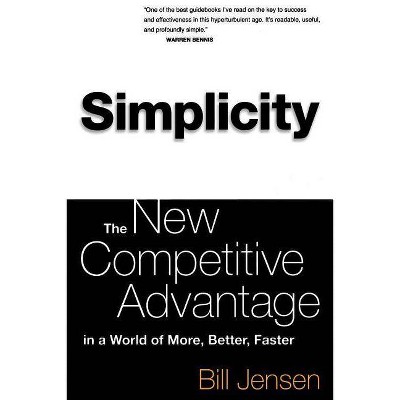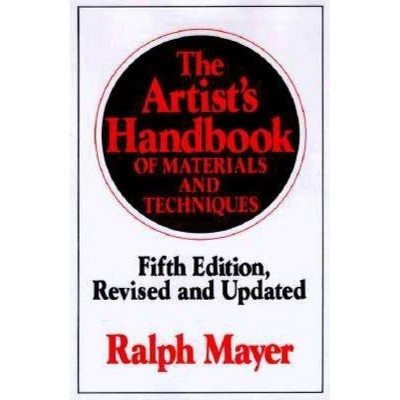The Laws of Simplicity - (Simplicity: Design, Technology, Business, Life) by John Maeda (Paperback)

Similar Products
Products of same category from the store
AllProduct info
<p/><br></br><p><b> About the Book </b></p></br></br>Ten laws of simplicity for business, technology, and design teach readers howto need less but get more.<p/><br></br><p><b> Book Synopsis </b></p></br></br><b>Ten laws of simplicity for business, technology, and design that teach us how to need less but get more.</b><p>Finally, we are learning that simplicity equals sanity. We're rebelling against technology that's too complicated, DVD players with too many menus, and software accompanied by 75-megabyte read me manuals. The iPod's clean gadgetry has made simplicity hip. But sometimes we find ourselves caught up in the simplicity paradox: we want something that's simple and easy to use, but also does all the complex things we might ever want it to do. In <i>The Laws of Simplicity</i>, John Maeda offers ten laws for balancing simplicity and complexity in business, technology, and design--guidelines for needing less and actually getting more.</p><p>Maeda--a professor in MIT's Media Lab and a world-renowned graphic designer--explores the question of how we can redefine the notion of improved so that it doesn't always mean something more, something added on.</p><p>Maeda's first law of simplicity is Reduce. It's not necessarily beneficial to add technology features just because we can. And the features that we do have must be organized (Law 2) in a sensible hierarchy so users aren't distracted by features and functions they don't need. But simplicity is not less just for the sake of less. Skip ahead to Law 9: Failure: Accept the fact that some things can never be made simple. Maeda's concise guide to simplicity in the digital age shows us how this idea can be a cornerstone of organizations and their products--how it can drive both business and technology. We can learn to simplify without sacrificing comfort and meaning, and we can achieve the balance described in Law 10. This law, which Maeda calls The One, tells us: Simplicity is about subtracting the obvious, and adding the meaningful.</p><p/><br></br><p><b> Review Quotes </b></p></br></br><br>If brevity is the soul of wit, simplicity is the soul of design. John Maeda uses the concept of simplicity to get at the nature of human thought and perception while drawing out tangible applications for business, technology, and life in general. <i>The Laws of Simplicity</i> is thoroughly optimistic, entertaining, and erudite, just as you would expect from Maeda. It is also the most compelling one hundred pages of design writing I have read this year. <b> - Rob Forbes, Founder, Design Within Reach </b> <p/> Our lives and our businesses are faster and broader than ever. As such, they are also more complex and difficult to manage, for both customers and managers. Therefore, achieving simplicity in both our products and our organizations will be crucial for securing market share. No one has seen this more clearly than John Maeda, the Master of Simplicity. <i>The Laws of Simplicity</i> is a clear and incisive guide for making simplicity the paramount feature of our products; it's also a road map for constructing a more meaningful world. <b> - Andrea Ragnetti, Board of Management, Royal Philips Electronics </b> <p/> I planned to skim/sample John Maeda's book, then decide to endorse it -- or not. I quickly found myself mesmerized -- and thence the only issue was deciding what were the strongest words I could muster in support of <i>The Laws of Simplicity</i>. The book is important; and Maeda has made an absurdly complex subject -- simplicity -- approachable and usable. Bravo! I hope the people who design the products I'll acquire in the next ten years take this book to heart. <b> - Tom Peters </b><br><p/><br></br><p><b> About the Author </b></p></br></br>An internationally recognized leader at the intersection of design and technology, John Maeda is Executive Vice President/Chief Experience Officer at Publicis Sapient. He was the 16th President of the Rhode Island School of Design (RISD). He is the author of <i>Design by Numbers</i>, <i>The Laws of Simplicity, </i> and <i>Redesigning Leadership</i>, all published by The MIT Press.
Price History
Cheapest price in the interval: 15.39 on November 6, 2021
Most expensive price in the interval: 15.39 on December 20, 2021
Price Archive shows prices from various stores, lets you see history and find the cheapest. There is no actual sale on the website. For all support, inquiry and suggestion messages communication@pricearchive.us
